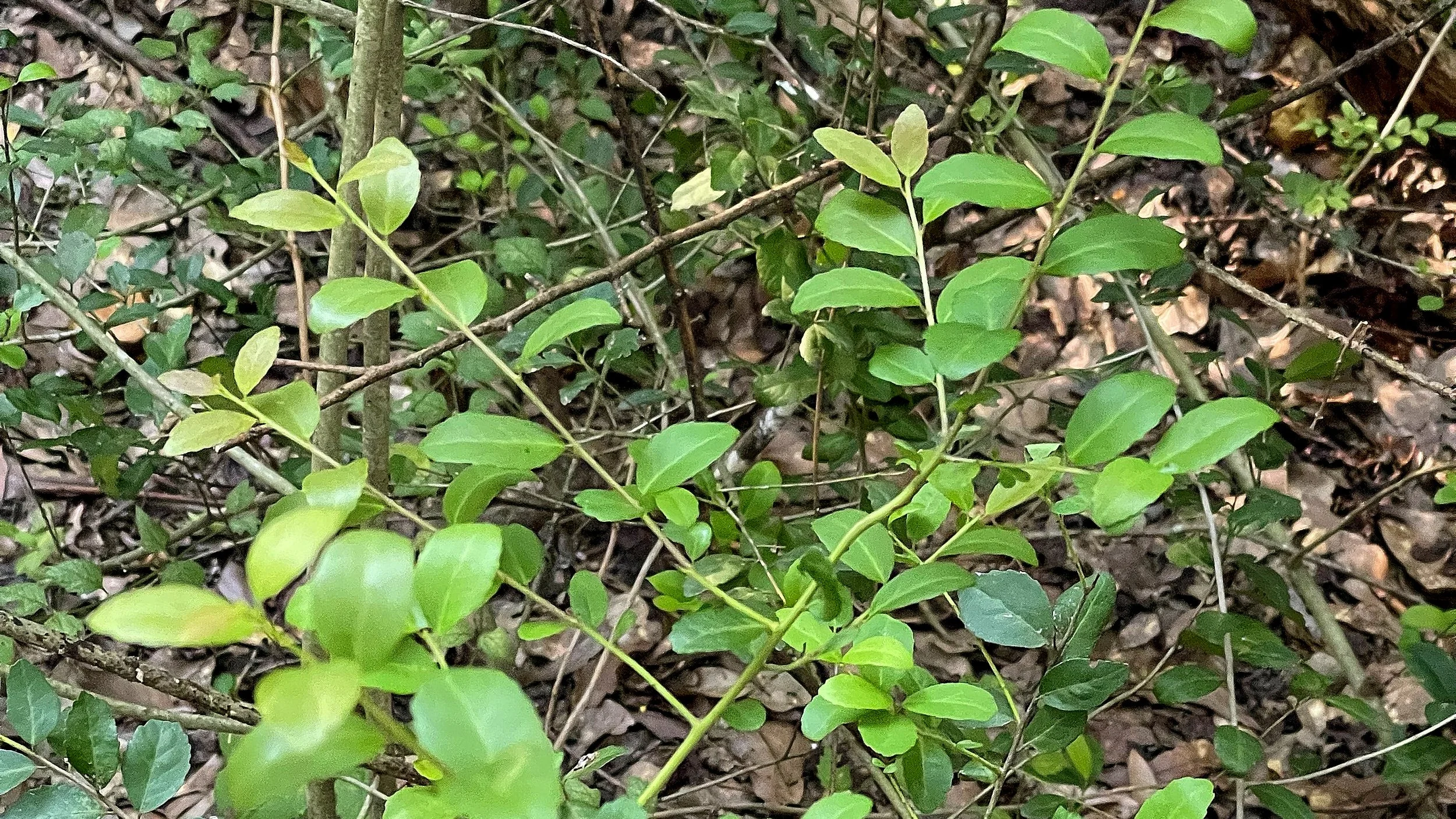All along this side of the trail you will see medium-sized shrubs with glossy, dark green leaves. This is the Yaupon Holly, a native, evergreen shrub that is one of the most common understory plants in east Texas.
The Yaupon Holly is distinguished by its leaves, which have bumpy edges and occur one at a time on alternating sides of the stem, and its small, white flowers (when in bloom), which in time turn into berries. When Yaupon berries are ripe, they are bright red – usually in winter or early spring. These berries provide an important source of food for winter and migratory birds.
Native insects, which are very particular in what they eat, also dine on the Yaupon Holly. Look closely at the leaves of the Yaupon Holly and you will see small holes that are signs of insects feeding on the leaves. Although birds will eat the berries of both native and non-native plants, insects, which are very particular in what they eat, predominantly dine on the native holly. Why is this? Plants are in a kind of chemical warfare race with the insects. The plants make toxins to discourage other creatures from eating them. Insects that live in the same area as the native plants have evolved to make detoxifying chemicals that allow them to eat the native plants. But the toxins in foreign plants are new to local bugs, so they are repelled by the foliage of the exotic plants.
Yaupon tree berries.
This occurrence is important because insects are vital to the chain of life in the forest. If they feed on a plant, they will control the growth of that plant. They, in turn, will provide food for other creatures. Insects provide an incredibly rich source of protein. For this reason, species of birds that normally eat seeds as adults will only feed insects to their young. If the number of insects declines because the native foods that they like to eat are being replaced by non-natives, the number of birds will also start to decline.
People have also used the leaves of the Yaupon Holly for many years. The Karankawa People of East Texas often made tea from Yaupon leaves. The tea is similar to the more-widely-known, and related, yerba mate, and has roughly more caffeine than black tea, but less than coffee. Few Americans realize that they could be drinking a beverage containing caffeine that is grown locally, or even in their backyards! Yaupon Holly tea is rich in the antioxidants known as polyphenols and is quite tasty.


